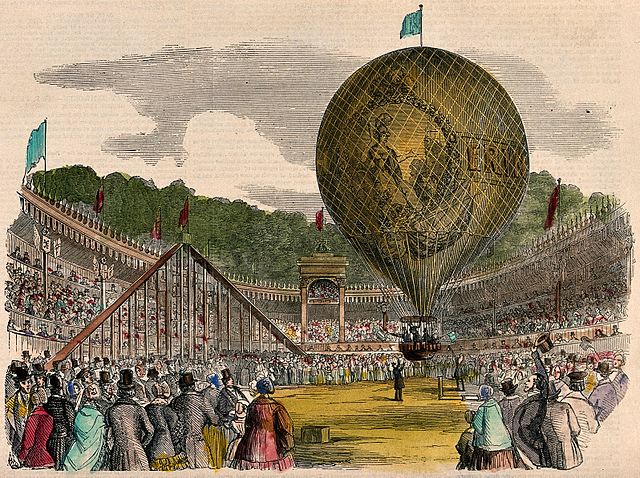
More words that are easy to confuse
Polities/ policies/ politics
The noun polity refers to a form or process of civil government or constitution. The plural of the word polity is polities. These words derive from an ancient Greek term meaning citizenship or government. For writers of Thai English, the problem with polities as a word is that although it is not often seen, it does occur in academic research projects and theses, so it is worth learning. Yet it is also very similar to two more familiar words, the nouns policies and politics. All TU students know the meaning of the words policies and politics, but it may be helpful to think of some strategies of how to avoid writing policies or politics when we mean polities. One challenge is that since all three words are correct in standard English, spell check programs will not tell us if we write politics instead of polities, or polities instead of policies. These errors are sometimes seen in Thai English.
To resolve this issue, we may try to avoid writing the plural of the word polity in our academic research work or thesis, choosing instead to use a synonym such as forms of constitutions or civil government processes. It may take more words to express the same thing, but at least we will have avoided the difficult word polities, with the words that look so much like it. Another approach would be to invent short sentences using all three words, so that we grow familiar with looking at them to the point where we no longer confuse them so easily. One such sentence might be:
In the TU class about international politics, the ajarn discussed policies and polities.

Here are some usage examples:
- The German nobleman in the 18th century had been loyal, once, to the King of Saxony but such small polities were surely an anachronism.
- A preliminary study of the administrative polities of Napoleon I.
- The Greek spirit; phases of its progression in religion, polities, philosophy and art.
- At the dawn of Greek history, Mycenae is no longer the seat of empire; new empires, polities and civilizations have grown up – Sparta with its military discipline, Delphi with its religious supremacy, Miletus with its commerce and numberless colonies, Aeolis and Ionia, Sicily and Magna Graecia.
- Thus the divine kingship of Alexander derives in direct line, not from the Oriental polities which (Egypt apart) know nothing of royal apotheosis, but from these Hellenic theories of the state.
- Educators unimpressed by education policies offered. Asst Professor Athapol Anunthavorasakul, who lectures at Chulalongkorn University’s Faculty of Education, said most of these policies focus far too much on short-term goals. “In my view, no education minister has ever set his or her sights beyond their tenure,” he complained. The education policies rolled out by the Democrat Party, Thailand’s oldest political party, include providing free vocational education, free breakfast for students and adjusting the curriculum.
- The Phalang Pracharat Party, which is pushing for Prime Minister Prayut Chan-o-cha’s return, is offering to help tackle student loans for struggling graduates. The Pheu Thai Party, which won the 2011 election, is offering One Laptop Per Child, promising to raise educational standards and equal opportunities. The Future Forward Party, a new star on the political scene, has promised that it will ensure fair access to quality education and is seeking to engage all sectors of society in the development of the education sector. “But these policies hardly address the core of education reform,” Athapol said, adding that he believes a few time bombs have been left behind and the new education minister will have to deal with these in the near future… Sompong Jitradub, who is Athapol’s senior colleague, said the education policies being offered by the parties are not as good as their economic policies. “Actually, none of these parties have explained how they will solve the country’s education crisis,” he said, adding he would give most parties a failing grade if their evaluation were to be based on their education policies alone.
- Thailand’s new policies to drive. The government sector of Thailand and other Asian countries needs urgently to prepare for the new challenges shaped by energy transition, said Air Chief Marshal Prajin Juntong, Deputy Prime Minister of Thailand, at the 7th Asian Ministerial Energy Roundtable, held earlier this month in Bangkok. In order for energy transition to go smoothly, it is necessary for government to take a strong role in setting directions and devising policies, he said. And that includes creating a favourable environment for private investment in the energy sector. Prajin said that in the past 10 years, the world has gone through many changes as has the energy sector. The challenges created by climate change are becoming an increasingly important driver of change. The Paris Agreement on Climate Change directly implicates the energy sector, which contributes two-thirds of the greenhouse gas emissions that threaten the planet, sustainable development, and our way of life.
- China’s Hydro-politics in the Mekong explores the intricate processes of conflict and cooperation over the use of water resources in the Mekong river basin between upstream China and the downstream countries of Laos, Thailand, Cambodia, and Vietnam. The book tackles two gaps in the empirical literature: first, the neglect of international hydro-politics as one specific and increasingly important issue area of China’s foreign policy behavior, especially its neighborhood diplomacy; and second, the disregard of China’s role in Mekong River politics.
- From early youth he took a prominent part in the politics of his clan, and owing to his extreme opinions with regard to the expediency of abolishing the Tokugawa administration, he was banished (1858) to the island of Oshima (Satsuma), where he attempted unsuccessfully to commit suicide.
- Aristotle’s brief suggestions respect ing the origin of society and governments in the Politics show a leaning to a naturalistic interpretation of human history as a development conditioned by growing necessities.
- Lord Stormont’s family was Jacobite in its politics, and his second son James (c. 1690-1728), being apparently mixed up in some of the plots of the time, joined the court of the exiled Stuarts and in 1721 was created earl of Dunbar by James Edward, the Old Pretender.
- The performances of Los Comuneros were attended by members of the different parties; the utterances of the different characters were taken to represent the author’s personal opinions, and every speech which could be brought into connexion with current politics was applauded by one half of the house and derided by the other half.
- His fathers took a prominent part in Athenian politics, and in 479 held high command in the Greek squadron which annihilated the remnants of Xerxes’ fleet at Mycale; through his mother, the niece of Cleisthenes, he was connected with the former tyrants of Sicyon and the family of the Alcmaeonidae.
- Until 22 May 2014 the politics of Thailand were conducted within the framework of a constitutional monarchy, whereby the prime minister is the head of government and a hereditary monarch is head of state. The judiciary is independent of the executive and the legislative branches.
- Thai kingdoms and the late Kingdom of Siam were under absolute rule of kings. After the “democratic revolution” in 1932, led by Westernized bureaucrats and a tradition-oriented military, the country officially became a constitutional monarchy with a prime minister as the head of government. The first written constitution was issued. Politics became the arena of fighting factions between old and new elites, bureaucrats, and generals.

(All images courtesy of Wikimedia Commons)
